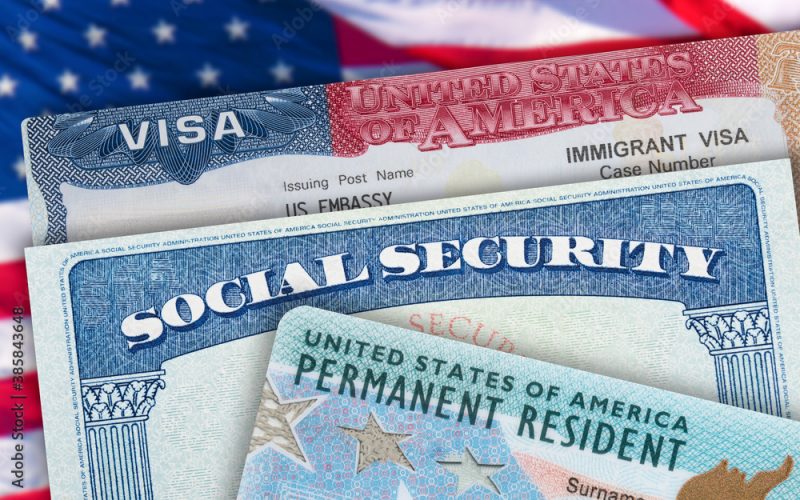Only three out of every 100 U.S. immigration applicants enter the country with legalized status, according to a new report.
According to a recent report released by the U.S. Citizenship and Immigration Services, 32 million people, including adults and children, actually began the process of immigrating to the U.S. as of 2021. However, only 900,000 immigrants, or 2.81% of all applicants, were permitted to enter the U.S. legally after completing the paperwork process, signaling a narrowing of the door to immigration.
By immigration category, employment-related applications accounted for 75% of all immigrant applications, or 24 million. Of these, 200,000 immigrants were admitted to legal residency.

In contrast, 700,000 of the 8 million family-based immigration applicants, or more than 10%, were granted legal residency, as the family-based visa quota is more than three times higher (480,000 per year) than the employment-based quota (140,000).
Of the 200,000 refugee applicants, 20,000 were granted green cards. The tightening immigration window is driven by an explosion in the number of applicants, while visa quotas have remained unchanged for decades, adding to the significant backlog, the report said.
In fact, according to statistics released by the Bipartisan Policy Center last November, there are 7.6 million people waiting to be approved for green cards as of 2022.
Even if they are approved, most are unable to receive their green cards in time because they are tied to a quota of 675,000 visas per year (480,000 for family-based immigrants, 140,000 for employment-based immigrants, and 55,000 for the lottery), the Bipartisan Policy Center said.
The center estimated that without an increase in the green card quota, it would take more than a decade to process the backlog, costing the U.S. an estimated $4 trillion in economic losses. There is also a backlog of 6.9 million family immigration cases. For some applicants, the wait for a green card is more than 200 years, the report noted.
While a citizen’s spouse or minor child can get a green card as soon as their paperwork is approved because there is no visa quota, a citizen’s sibling from Mexico would have to wait 224 years for a green card. Siblings from South Korea have a 45-year wait for a green card. Unmarried adult children of citizens will have to wait 14 years if they are from South Korea and 33 years if they are married.
For employment-based immigrant applicants, the pandemic suspension of visa processing has led to a backlog that has not yet been resolved.
The lottery green card program, which aims to increase the diversity of immigrants, has seen 11.8 million applicants in 2021 alone, competing for a quota of 55,000 visas, and refugee visas, which are issued annually at 125,000, have also seen hundreds of thousands of applicants, leading to long wait times, the report added.
BY NICOLE CHANG, HOONSIK WOO [chang.nicole@koreadaily.com]




